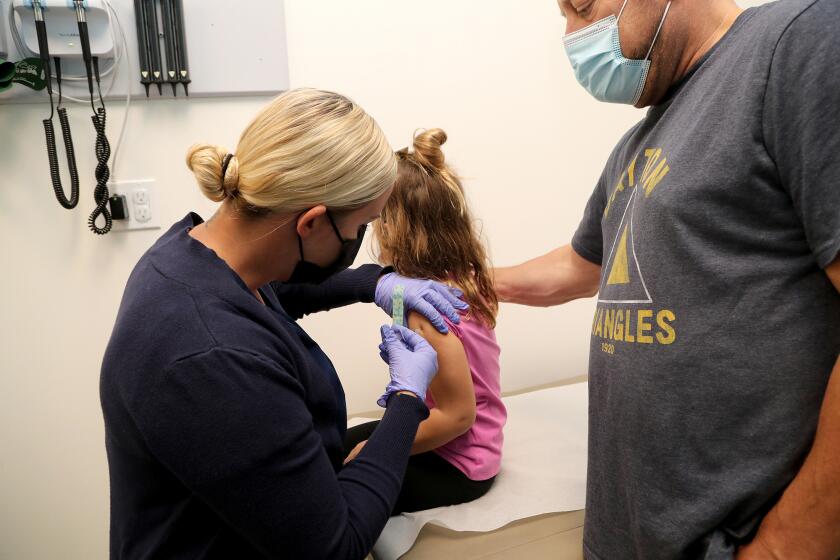Commentary: Taking teen mental health seriously

- Share via
Alarming headlines have filled the news this past week. First, there was a chilling exposé of a website that encourages teenagers to take their own lives. Then Instagram CEO Adam Mosseri’s testimony before Congress failed to articulate safeguards for teens’ mental health, despite research that links the social media site to teen depression, anxiety and suicidal ideation.
There is no doubt that the nation’s youth are hurting. The one-two punch of pandemic-related isolation and social media exploiting children’s vulnerabilities has scarred our teens and young adults.
A recent advisory from the U.S. Surgeon General on the youth mental health crisis warns of worsening depression, anxiety and suicides among our adolescent population that was already experiencing a major national crisis prior to COVID-19. The number of U.S. emergency room visits for suspected suicide attempts by teen girls jumped during the COVID-19 pandemic by as much as 51%.
Here in Orange County, we are experiencing this firsthand.
The California Department of Health reported that the number of suicides among people age 18 and under rose in 2020. In Orange County as of September, 11 young people took their lives, far surpassing the four-year average of eight suicides.
COVID-19 has precipitated a mental health crisis, fueled by social isolation, collapse of routines and structure, and increased uncertainty about the future. All of us, whether young or old, have developed disease fatigue, which is exacerbated by continuous contact and exposure to potential triggers without respite.
Mental health issues are medical issues and need to be treated as such. It’s critical — now more than ever — to take mental health seriously and get our teens the help they deserve.
Parents can do their part by keeping an open mind, asking questions in an open-ended fashion and remaining nonjudgmental, non-critical, and non-accusatory. Timing is everything; find the right time and place to have this important and potentially emotionally charged conversation and remain patient to revisit this conversation at a later time and date if necessary.
Emphasize that your concerns are coming from a place of love, warmth and support and don’t expect teens to open up immediately about how they feel.
Commentary: Moms-to-be and new moms, don’t delay on COVID-19 vaccines to protect you and your babies
Many pregnant women are skipping vaccination due to misinformation campaigns pedaling misleading or outright false narratives about the vaccines’ safety and efficacy.
Many times, teens do not feel comfortable sharing these potentially deep seated issues with family members and may be more open and transparent with a third party like a therapist, psychologist, pediatrician or psychiatrist.
Don’t be afraid to reach out for help.
There are resources available in many communities, including through local, county and state departments. Parents can find various directories online for mental providers and should reach out to their respective insurance companies to obtain a list of providers, whether therapist, psychologist or psychiatrists. Depending on the need or severity of symptoms, parents may need to inquire about higher levels of care, including intensive outpatient programs, partial hospitalization programs, inpatient psychiatric units and residential treatment centers including therapeutic boarding school, wilderness programs and dual diagnosis (drug/alcohol combined in conjunction with primary mental health issues).
The ASPIRE adolescent intensive outpatient program at Hoag, one of the few programs that has remained open in person in Orange County, has seen a significant rise in admissions due to the unnatural demands of this global health crisis.
No doubt, this has been a traumatic time for this generation, but I have hope for teens. They are much more resilient and adaptable than we realize, but they have much better odds of flourishing and persevering in this time of crisis if they get the attention and support they deserve.
Dr. Sina Safahieh, child and adolescent psychiatrist at Hoag.
All the latest on Orange County from Orange County.
Get our free TimesOC newsletter.
You may occasionally receive promotional content from the Daily Pilot.




